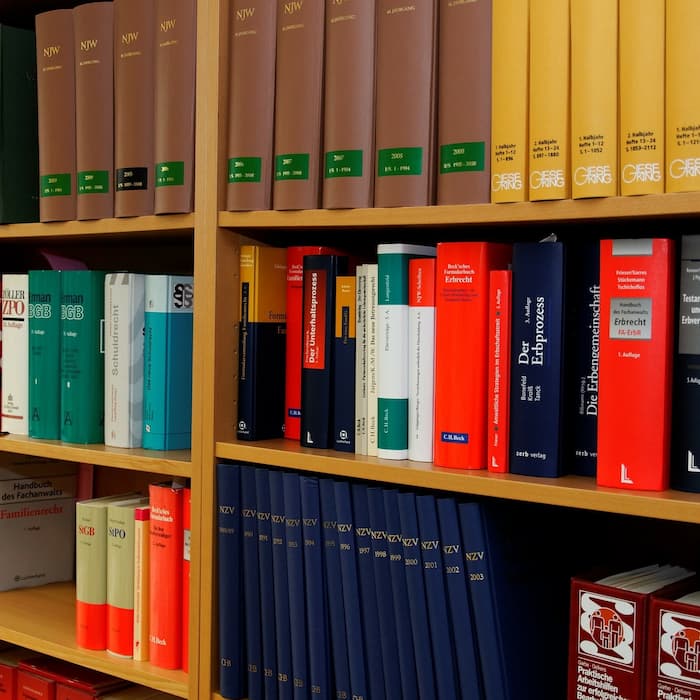Legal
Undue Influence In Focus: Reflections From UK Case

At the heart of the topic is the issue of power imbalances in financial relationships.
A bank can be put “on inquiry” whenever a party agrees to act as guarantor for a loan made to another party, where the bank is aware that the loan will be used to clear a debt. The principle exists to protect potentially vulnerable parties from risk of undue influence over loans. (See an earlier article here on the topic.) In this article, authors Samara Dutton, partner, Collyer Bristow, and her colleague, trainee solicitor Camilla Brown, take another look at a UK ruling. The editors are pleased to share this content; the usual editorial disclaimers apply to views of guest writers. To comment, email tom.burroughes@wealthbriefing.com and amanda.cheesley@clearviewpublishing.com
The Supreme Court’s recent decision in OneSavings Bank plc v
Waller-Edwards [2025] UKSC 22 has brought the doctrine of
undue influence into sharp focus. The case concerned the
circumstances in which a lender will be “put on inquiry” as to
whether a joint borrower in a non-commercial context has given
informed consent. In this case Ms Waller-Edwards took out a joint
mortgage with her partner, Mr Bishop. While most of the loan was
ostensibly for joint purposes, around £40,000 ($54,537) was
earmarked to repay some of Mr Bishop’s personal debts.
Ms Waller-Edwards later claimed that she had been unduly
influenced by Mr Bishop into entering the transaction and argued
that the bank should have taken reasonable steps to ensure that
her consent was properly obtained. If correct, the entire
transaction could be set aside.
The county court, High Court and Court of Appeal found against
her, but her resilience in appealing those decisions paid off
when the Supreme Court confirmed the correct test to apply was
the ‘bright line’ test – namely that for non-commercial
relationships, if there is more than a trivial element of
borrowing which only benefits one of the borrowers, the lender is
put on notice. In the Supreme Court’s opinion, the £40,000 put
towards Mr Bishop’s debts crossed this threshold.
While the case is mainly relevant to commercial lenders, it has
wider significance in its affirmation of equitable principles to
address undue influence and the demonstration of the courts’
willingness to scrutinise power imbalances in financial
relationships. This has relevance in the context of private
wealth, where such dynamics often arise in lifetime gifts,
property transactions, and – perhaps most acutely – in
the execution of wills.
A high evidential threshold
Interestingly, by the time this case reached the Supreme Court,
the question of whether Mr Bishop had unduly influenced Ms
Waller-Edwards was not in dispute. That is unusual. Undue
influence is particularly difficult to prove especially in the
context of wills, so its existence is normally subject to
challenge. While in inter vivos transactions the law may presume
undue influence in certain circumstances (for example, where
there is a relationship of trust and a substantial benefit is
conferred), in probate disputes there is no such presumption.
Instead, the burden lies squarely on the person alleging undue
influence to demonstrate not only that influence was exerted, but
that it overpowered the testator’s free will.
This sets a high bar. The influence must be coercive, not merely
persuasive; the testator must be shown to be a victim whose free
agency has been overridden. This means that even strong
suggestions, emotional pressure, or manipulation may not be
sufficient to establish undue influence, unless the court is
satisfied that the testator would not have made the will but for
that influence. Direct evidence is rare, and cases often rely on
circumstantial factors such as isolation, dependency, and the
alleged influencer’s involvement in the will’s preparation.
This evidential challenge is compounded by the fact that the
testator is no longer available to give their account. As a
result, courts often approach undue influence claims with
scepticism, especially where there is no procedural impropriety
or where professional advisors were involved. Many claims fail
not due to the absence of undue influence, but due to the lack of
proof.
Reform on the horizon
Recognising these challenges, the Law Commission published a
consultation paper in May 2025 proposing significant reform to
the law of wills, including placing the doctrine of undue
influence on a statutory footing for the first time. One of the
central aims is to reduce the evidential burden currently faced
by those challenging a will, to protect the wishes and interests
of vulnerable testators.
Among the key proposals is the introduction of a rebuttable
presumption of undue influence where a person in a position of
influence receives a significant benefit from a will and the gift
to them lacks an obvious explanation. Rather than requiring the
challenger to prove coercion, the onus would shift to the
beneficiary to show that the gift was freely made.
In parallel, the Commission seeks to clarify the closely-related
doctrine of “knowledge and approval” by introducing a statutory
test. Under this test, a court must be satisfied that the
testator (i) knew they were making a will and understood its
nature and effect, and (ii) knew and approved the contents of the
will. The Commission also recommends that certain factors should
trigger a requirement for the propounder of the will to prove
knowledge and approval, such as where the will was unread,
unusually complex, or drafted with a beneficiary’s
involvement.
Why this matters for wealth practitioners
With the increasing prevalence of dementia and other cognitive
impairments in an ageing society, the Waller Edwards
case and the Commission’s reform agenda act as timely reminders
for wealth practitioners. Undue influence is not a marginal issue
– it intersects deeply with trust, estate, and wealth
practice. In particular:
-- Estate professionals must remain alert to possible undue
influence when advising on wills, especially where beneficiaries
are caregivers, cohabitants, or otherwise in a position of
influence over the testator.
-- Documenting intent and engagement is crucial. Detailed
will drafting notes – covering independence of instructions,
the testator’s understanding, and discussions around benefit
– could be decisive in any future dispute.
-- Advisors should recommend independent legal advice, not
just for wills but for any significant financial transaction
where vulnerability or dependency is present.
What comes next?
The Law Commission’s proposals are now with the government for
consideration. Despite broad support, there are concerns about
unintended consequences – such as a surge in litigation and
the associated burden on estate administration. Nonetheless, the
move towards statutory recognition of undue influence is a
watershed moment in legal history.
Future case law will be critical. It will be compelling to see
how the courts adapt to these proposals, assuming that they are
adopted. Certainly, there is an opportunity to significantly
reshape the way undue influence is assessed – with
far-reaching consequences for estate planning, will drafting, and
the resolution of probate disputes. In the meantime, it never
hurts to remind wealth practitioners of the importance of their
role in securing and safeguarding their clients’ autonomy and
independence.
The authors

Samara Dutton

Camilla Brown